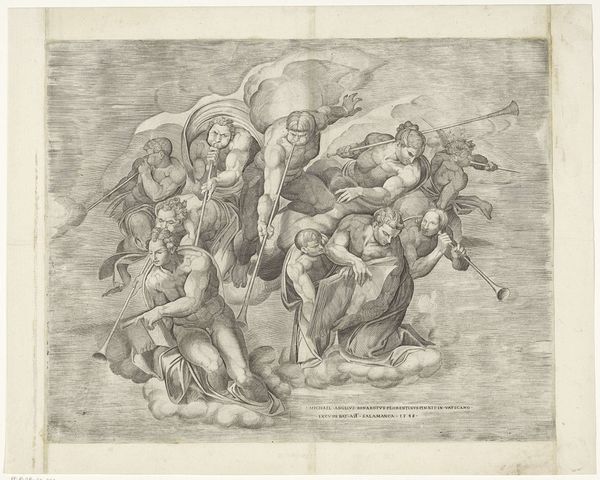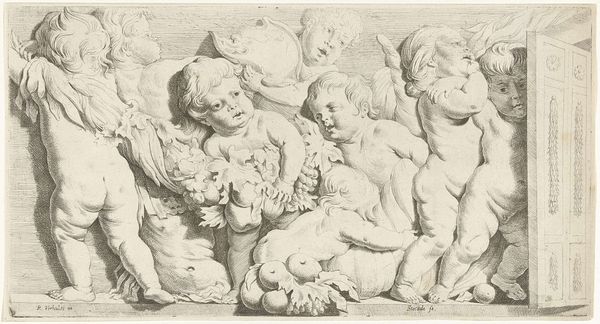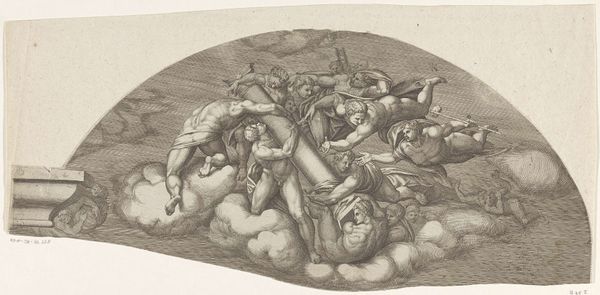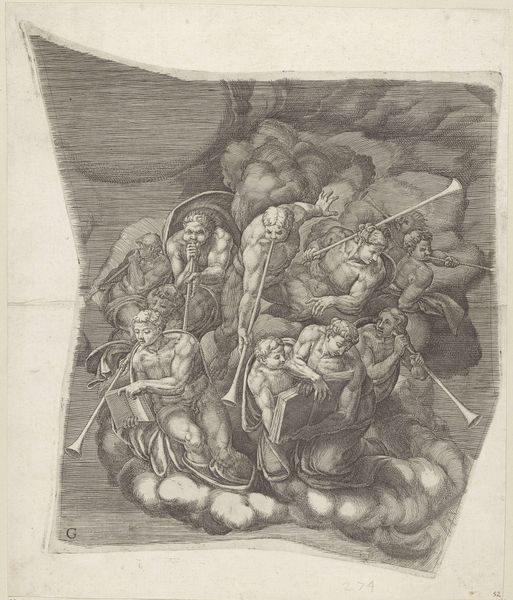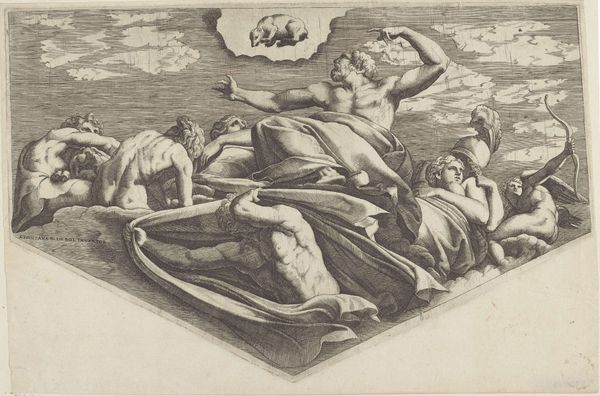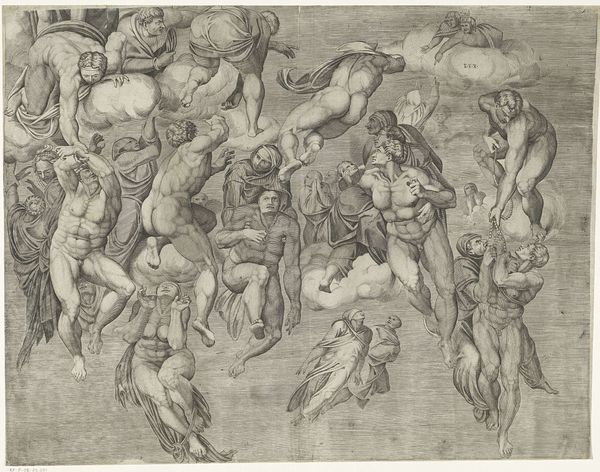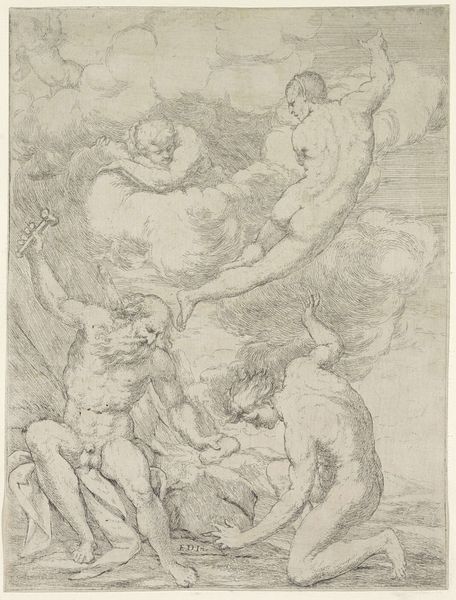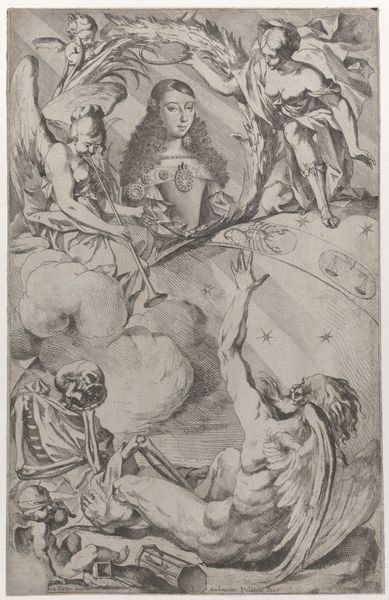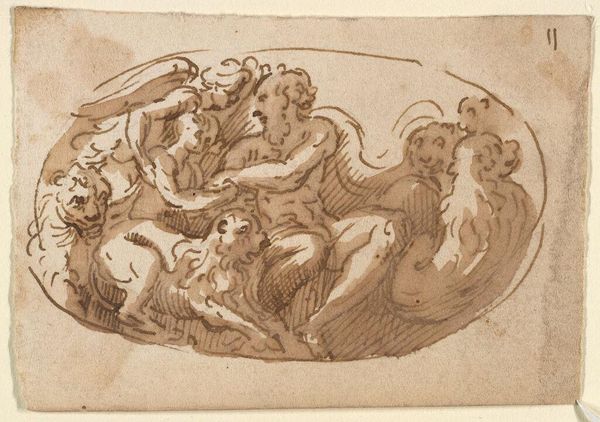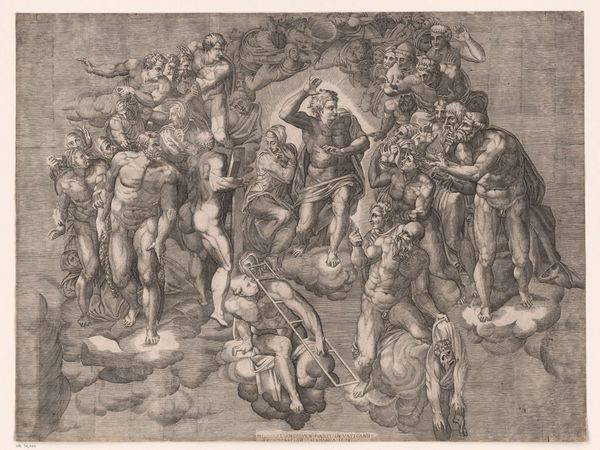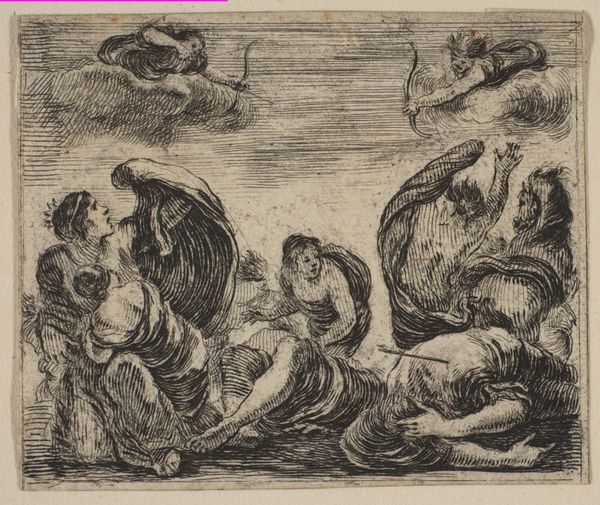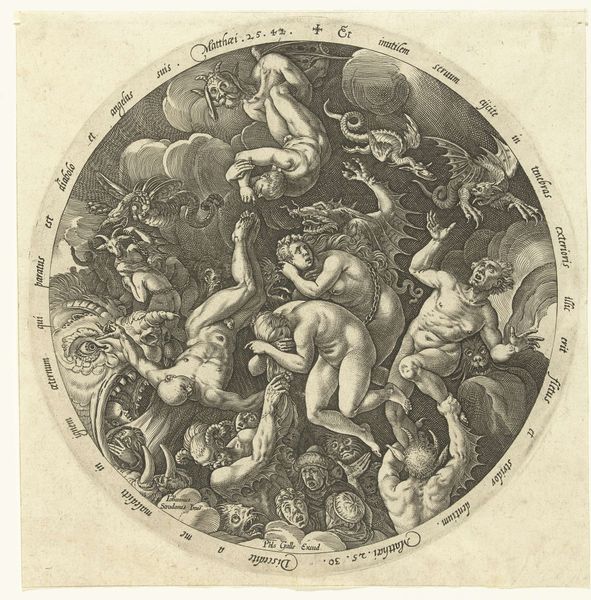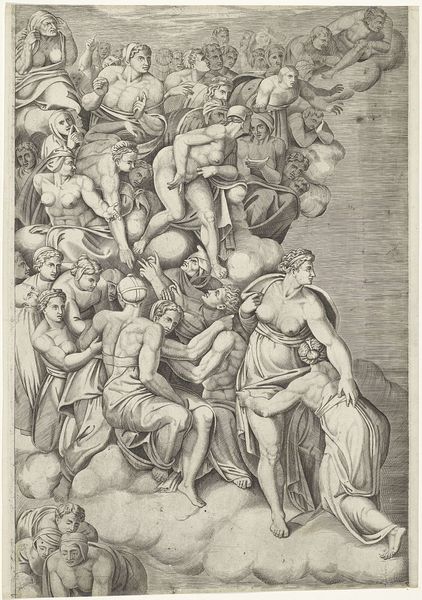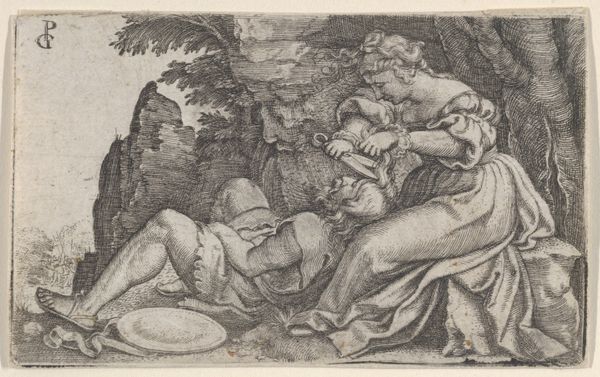
drawing, print, engraving
#
drawing
#
narrative-art
# print
#
figuration
#
11_renaissance
#
history-painting
#
italian-renaissance
#
engraving
Dimensions: height 370 mm, width 539 mm, height 376 mm, width 145 mm
Copyright: Rijks Museum: Open Domain
This print, "The Last Judgement," was created by Nicolò della Casa, sometime in the 16th century. It is an engraving, which means the artist used a tool called a burin to carve lines into a metal plate, likely copper. Ink is then pressed into these lines, and the image transferred to paper. Look closely, and you’ll notice the design is based on Michelangelo’s famous fresco in the Sistine Chapel. Yet, rather than simply copying, della Casa has reinterpreted the scene through the graphic language of engraving. The stark contrast between the hatched lines and the blank paper creates dramatic tonal variations, mimicking the light and shadow effects of the original painting. The engraver’s skill lies in translating the dynamism and color of paint into the precise, repeatable medium of print. This was a laborious, highly skilled practice, requiring years of training. Prints such as these served as a key means of disseminating artistic ideas across Europe, making masterpieces like Michelangelo's "Last Judgment" accessible to a wider audience. So, consider how this work embodies the intersection of craft, artistic expression, and the burgeoning world of print culture.
Comments
No comments
Be the first to comment and join the conversation on the ultimate creative platform.
